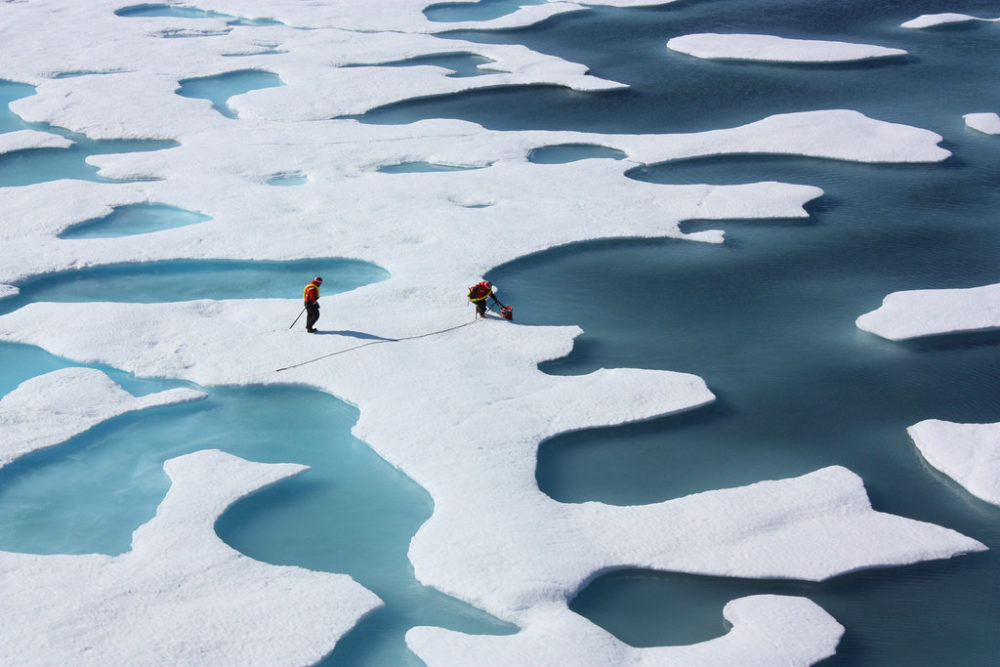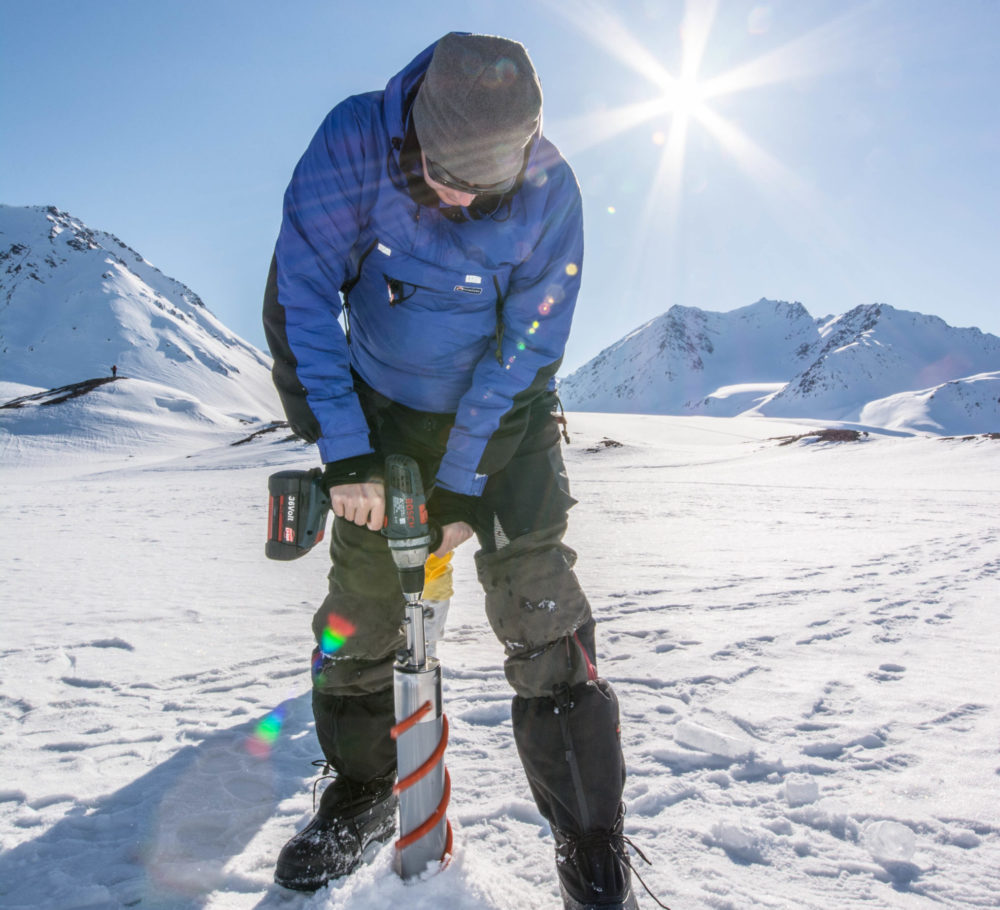Secret Arctic microbial night life investigated by Aberystwyth scientists

Aberystwyth University academics are visiting Svalbard in the Arctic to investigate the night life of microbes.
Led by Aberystwyth University, three experts will visit Arctic glaciers to study microbial life during the area’s ‘light winter’ – when it starts to emerge from its period of permanent darkness during polar night.
Until recently, scientists had assumed ecosystems on glaciers are only active when nourished with sunlight and in the brief melting season of summer, but recent data challenges that assumption.
24 hour darkness
The study, which is researching microbial life in all seasons of the year in the region, including its periods of 24-hour darkness, will collect samples for molecular analysis and measure microbial activities.
The work aims to shed light on how the microbes survive in these conditions, and how they interact with the carbon and nutrient cycles of the glaciers.
It is also testing the theory that microbial habitats on the surfaces of glaciers are active all year round, and so unexpected sources of greenhouse gases.

Dr Arwyn Edwards from Aberystwyth University said: “Our research aims, for the first time, to give a clear picture of how life survives each season on Arctic glaciers and what this means for the ecology of the glaciers as they face an uncertain future in a warming Arctic.
“We already know that in summer these ecosystems fix carbon and darken ice as solar energy is converted to dark organic carbon. As a result, ecosystems on glaciers influence the fate of glaciers in our warming world.
“This is a challenging region in which to conduct research, but unlocking the secrets of the microbes that live in the glaciers in the Arctic can offer us important answers about how the climate is changing. It also has the potential to reveal future medicines, and even inform us about how to wash our clothes using more environmentally friendly products.“
Research station
The research is funded by the Natural Environment Research Council and is led by Aberystwyth University with the support of universities in Svalbard, the University of Bergen in Norway, Aarhus University in Denmark and the Byrd Polar Centre in Ohio, United States.
As part of the research trip, the team will work at the UK Natural Environment Research Council (NERC)’s Arctic Research Station on Svalbard.
Support our Nation today
For the price of a cup of coffee a month you can help us create an independent, not-for-profit, national news service for the people of Wales, by the people of Wales.





